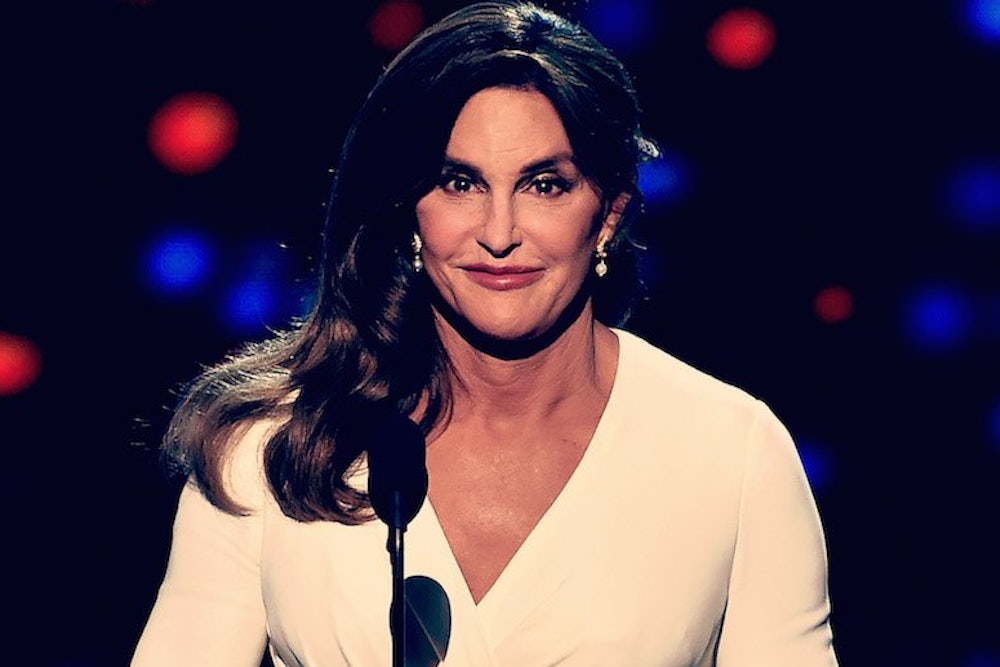On July 26, Caitlyn Jenner premiered her new reality show I Am Cait, reigniting the internet debate on the validity of the transgender identity. Which side of the debate one falls on correlates highly with one’s political position.
Liberal politicians like President Barack Obama tend to support Jenner and commend her on her courage.
On the other hand, conservative politicians like Mike Huckabee have mocked Jenner’s transition, some of them referring to her as mentallyill.
Of course, there are exceptions. Some conservatives support transgender individuals—indeed, Jenner herself identifies as a Republican—and some liberals deny that Jenner is a woman. But we think the conservative–liberal divide is prevalent enough to be worthy of attention.
Getting the facts straight
Those on the left and right seem to believe that they are motivated by a desire to get to the fact of the matter about what constitutes being a man or a woman. That is, they think that they are arguing for an unbiased account about what gender is.
One way they do this is by referring to anatomy. Many on the left argue that gender is “deeply rooted in one’s mind." They cite psychologists like Columbia’s Derald Wing Sue, who argues that “Caitlyn Jenner is not identifying with being a woman because of (her) upbringing and cultural conditioning”; rather, her gender is biologically programmed into her.
Those on the right often argue that being a man or woman is simply being born with male or female sex organs or that people who are transgender are mentally ill. They cite studies showing that individuals who have undergone reassignment surgery are more likely to commit suicide than those who have not. The increased risk of suicide is thought to show that identifying as transgender is a consequence of depression and, therefore, not a genuine identity.
An intense debate
The debate around these issues is intense. Controversial writer (and cofounder of Vice) Gavin McInnes' article “Transphobia Is Perfectly Natural”, for example, has elicited over 5,000 comments.
As empirically oriented philosophers with research interests in what motivates individuals' reasoning, we suspect that the debate is not motivated by a desire to get to the fact of the matter about gender. After all, when individuals disagree on other facts, such as (say) whether Napoleon won at Waterloo, we cannot predict people’s beliefs based on their political affiliation. Our view is that the intensity of this discussion is best explained by what psychologists call identity protective cognition.
Identity protective cognition is the tendency to selectively accept and dismiss information to support one’s identity.
This theory, developed by Dan M. Kahan of Yale Law School, argues that beliefs about how society “ought to be” are central to one’s group identity. People discount information if it suggests their group’s picture of the ideal society is lacking.
For conservatives, the ideal society tends to be hierarchical. They want—perhaps subconsciously—resource distribution to depend on factors such as social class, race, and sex. Status flows to men who work at well-paying jobs and women who stay at home and tend to the family.
Transgender individuals are dangerous to the hierarchy conservatives desire. They complicate the binary picture of division of labor within the traditional family. The existence of transgender individuals suggests that the assumption that underpins the legitimacy of the hierarchy—that people designated men and women at birth are naturally suited to particular gender roles—is false. So conservatives are motivated to deny the reality of transgenderism.
On the opposite side of things, research has shown that liberals tend to favor an egalitarian society. They want resources to be divided more equally, and they do not want the division to depend on gender. Social status should not be determined by conformity to gender stereotypes.
In such a society, transgender identities must be legitimate. Otherwise, there is a risk of propagating the view that one has to fall neatly into one of two genders, a view that forces men and women into unequal social roles.
We believe that if the debate at hand is to make real progress, we need to recognize that it is not merely about whether Jenner is female. It is implicitly a debate about how we ought to structure society and people’s roles in it. It is a debate not just about what certain words mean; it is about what they ought to mean.
![]()
This article was originally published on The Conversation. Read the original article.
